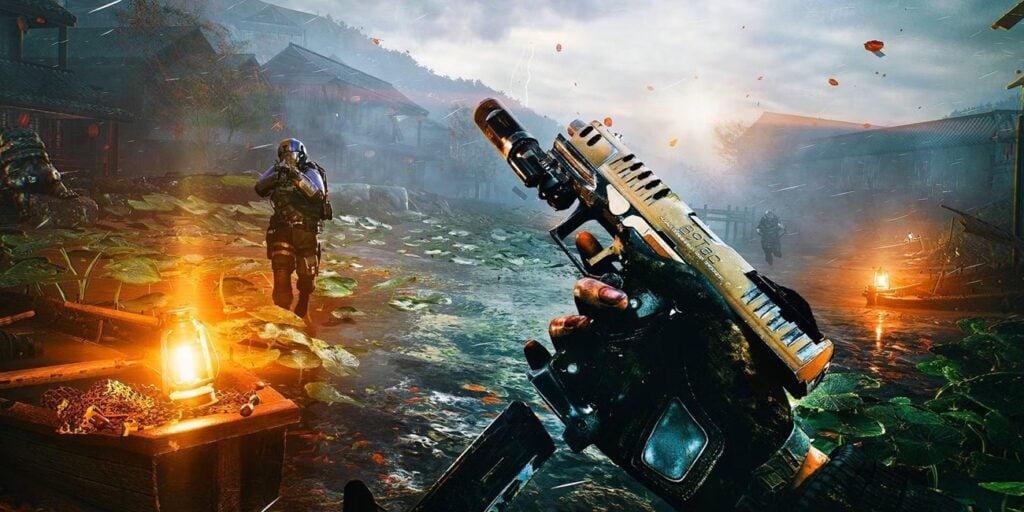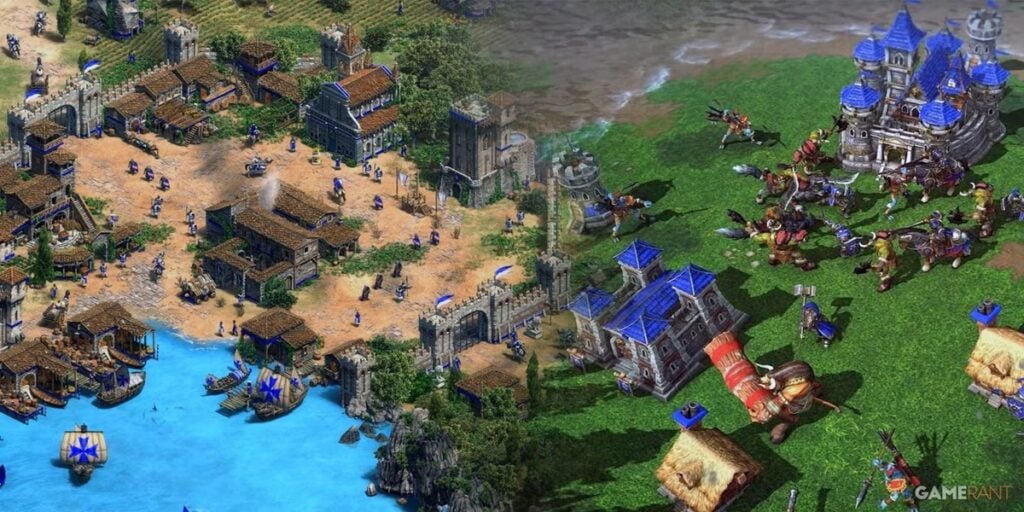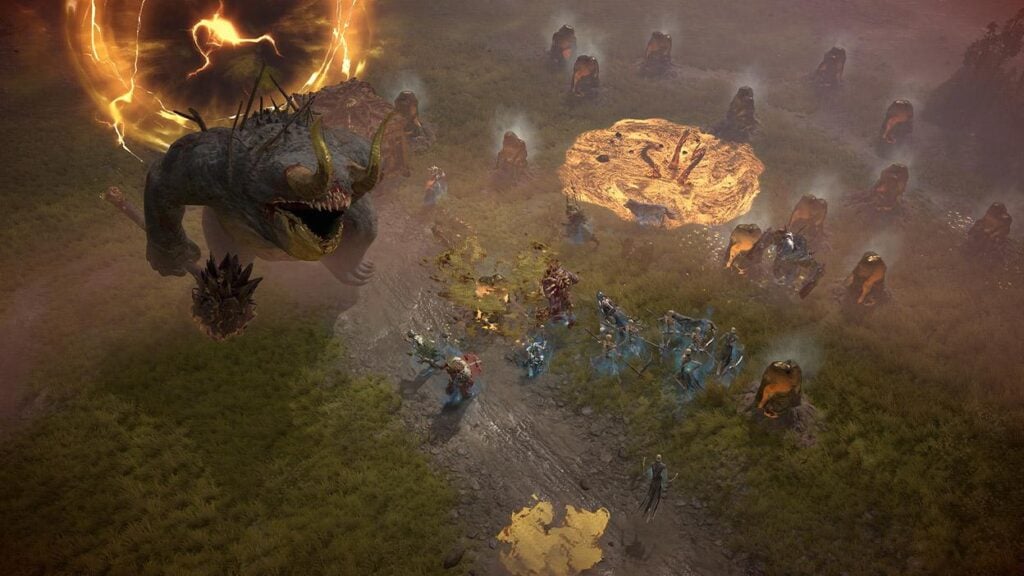We’ve all been there: scrolling through endless lists of game titles, feeling that hopeful little spark; maybe this is the one. And then ten minutes later… lost in the sea of options, paralyzed by sheer choice. If you’ve ever sighed at a store menu (or your Steam library) and mumbled “Help… what do I even want?”, trust us, you’re not alone. This is where game genres come riding in like old friends, waving a flag that says, “Don’t worry! We’ll help you find your next big adventure.” Imagine genres as carefully organized library aisles, each shelf holding stacks of stories with familiar vibes or mechanics. They’re not just abstract tags for developers to use in meetings. Game genres are our compass and our invitation: “Here, let us guide you to something you’re going to love, or maybe to something you never expected.” So let’s dive hand in hand into Understanding Game Genres, and see what magic we uncover together.

Understanding Game Genres
Let’s be honest, gaming has become a universe unto itself. Games can tug your heartstrings, send your pulse racing, or even teach you things you never expected (raise your hand if you learned Norse mythology from God of War; just me?). But with thousands of titles (and more dropping every week), picking your next great experience can feel a little daunting.
This is where genres become your trusty toolkit. They’re our shorthand for understanding the basic flavor a game brings to the table. By helping us filter through the noise, genres point us toward worlds that match our moods, whether we want sensory overload or a thoughtful slow-burn. The difference between an FPS and an RPG could be the difference between sweaty palms and a notebook full of moral choices.
So, whether you’re a seasoned gamer or someone who just picked up a controller for the first time last month, you can use genres to navigate your next steps with confidence. Ready to decode the secret language of gaming? Let’s go.

1. Introduction: What Are Game Genres and Why Do They Matter?
Let’s start at the beginning: why do genres even exist? What makes them so important, anyway? Well, understanding game genres is kind of like curating playlists for gaming. Imagine sorting your favorite music into “Workout Bangers,” “Chillout Beats,” or “Songs for Crying on the Bus.” Genres do the same, grouping games by gameplay, vibe, or theme, making it way easier for us to figure out what we’re in the mood for.
But genres aren’t just a boon for players; they’re a developer’s playground, too. By working within (or smashing through) genre boundaries, devs challenge themselves and surprise us, the players. These labels evolve as games evolve, and sometimes even the best games don’t fit into one neat box. But that’s part of the fun; it’s all about exploring, refining our preferences, and stumbling upon unexpected joys.
In short, genres aren’t limits. They’re gateways to new obsessions. And they’re here to make your game nights a heck of a lot easier to navigate.
2. The Big Three (and a Half): Core Genres Explained
Some genres are so classic, so universally loved, that it feels like every gamer circles back to them again and again. Whether you’re returning for the nostalgia or seeking the next level of excitement, these staples are the bedrock of gaming fun.

1. First-Person Shooter (FPS)
If you like to live in the moment, literally, FPS games might feel like home. You’re seeing the world through your character’s eyes, adrenaline surging, weapon clutched tight, scanning corners for threats. Understanding game genres helps explain why this perspective hits so hard: it’s immersive, immediate, and built for high-stakes action. Few things get the heart racing like the tight corridors of Doom, the all-out chaos of Call of Duty, or the tactical showdowns in Valorant. In my own group chats, half the memes are mid-match “oops” screenshots, because every FPS has those moments that become epic stories.
2. Multiplayer Online Battle Arena (MOBA)
Here, every match is a mind-bending chess game, with explosions. Two teams, complex maps, unique heroes with outlandish abilities; coordinating just right can make you feel invincible… or hilariously inept (and that’s half the fun). If you’ve ever stayed up too late for “just one more round” in League of Legends or Dota 2, you know the rush, and maybe the agony, of a MOBA comeback. And let’s give a shoutout to the mobile versions too; nothing bonds friends quite like a heated post-match debate in Mobile Legends: Bang Bang.
3. Role-Playing Game (RPG)
Are you the kind of player who dreams of epic stories, world-changing choices, and deep character development? Understanding game genres helps us appreciate why RPGs hold such a special place: they put you center stage, where the story bends around your decisions. Whether you’re forging destinies in The Witcher 3, trading banter in Final Fantasy, or exploring every corner of Elden Ring, RPGs specialize in immersion and growth. Creating a hero and watching them evolve never really gets old, and honestly, some RPG companions feel like real friends by the end.

4. Real-Time Strategy (RTS)
Here’s where the tacticians shine! Looking to test your mental agility, resource management, and split-second decision making? RTS puts you in the boots of a commander, building armies and civilizations on the fly. Games like StarCraft II demand your full attention; plan, react, adapt, repeat. Meanwhile, in Age of Empires, you can lead your people from sheep-farming to world conquest. As much as I love a frantic FPS or wild RPG, there’s something satisfying about zooming out and masterminding a victory from above.
3. Action-Adventure: The Genre that Blurs Lines
What if you want a little bit of everything? That’s the charm of the action-adventure genre; the ultimate “have your cake and eat it too.” By blending the thrill of action games with the brains and exploration of adventures, these games deliver the best of both worlds.
Think sweeping stories, puzzle-solving, a dash of platforming, and lots of memorable combat. Understanding game genres helps us see why games like The Legend of Zelda give us both heart-thumping boss fights and cozy moments of discovery. Uncharted feels like being in your favorite blockbuster movie. And whether you’re leaping across Renaissance rooftops in Assassin’s Creed or swinging an axe in God of War, these games are proof that mixing genres often leads to something special. No wonder so many of us keep coming back for more.
4. Beyond the Basics: Other Popular Game Genres
But wait, there’s more! (Now I sound like an infomercial, but trust me, the variety really is endless.) If none of the classics struck a chord, worry not; you might fall in love with one of these:

1. Platformer:
Precision and timing meet creative worlds. From countless childhood hours bouncing through Super Mario Bros. to conquering the artful bosses of Hollow Knight, platformers are all about perfect jumps and exploring mysterious places.
2. Fighting Game:
Step into the digital ring for some friendly and sometimes fierce competition. Understanding game genres helps explain why mastering those combos in Street Fighter or landing a finisher in Mortal Kombat feels so satisfying. Sure, you’ll lose a lot at first, but nothing brings friends together (or occasionally drives them apart) like a good sparring session.
3. Sports Game:
Not everyone can score in the World Cup or dunk in the NBA, but with these games, you can get pretty darn close. From FIFA to NBA 2K, sports games offer nail-biting, couch-sharing drama on demand.
4. Racing Game:
Speed, skill, and spectacle. Whether you want realistic highway thrill (Forza Horizon) or ridiculous, power-up-fueled mayhem (Mario Kart), you’ll find something that gets your engine running.

5. Simulation:
Ever wanted to build a city, fly a plane, or just control every little detail in a household? That’s the beauty of simulation games. The Sims can become a second life; Flight Simulator can take you anywhere on the globe… all without leaving your chair.
6. Puzzle Game:
For those who like to flex their mental muscles. With the addictiveness of Tetris or the mind-bending mechanics of Portal, puzzle games prove that sometimes the simplest concepts can be the most challenging.
7. Survival Game:
Thrown into dangerous environments with little but your wits and maybe a crafting table, survival games like Minecraft (in survival mode) and Rust demand grit and resourcefulness. Understanding game genres helps us recognize why these experiences feel so personal: the tension, the freedom, the triumph of surviving just one more night. The stories you tell later, like the time you barely survived your first night, are legendary.
8. Battle Royale:
The new kid on the block, but already a phenomenon. Drop in, scramble for loot, and fight tooth and nail until you (or your team) are the last ones standing. Fortnite and PUBG have turned “top 10, no wins” into a meme and a mission.
5. Hybrid Genres: When Games Mix and Match
Here’s where things get spicy. Many of today’s most memorable games don’t stick to one lane; they bring together the best bits of multiple genres to keep us guessing.

Love building a character and blasting enemies? That’s the heart of an Action RPG (Diablo, Elden Ring).
Craving story options and gunplay in first-person? That’s FPS-RPG territory (Borderlands, Fallout).
And if unpredictable adventures tickle your fancy, Roguelikes and Roguelites will have you hooked; each run is different, each death a new lesson. Hades and Slay the Spire are favorites for risk-takers and those who love learning (sometimes the hard way).
Mixing genres doesn’t just broaden gameplay; it creates possibilities for us to play and replay games that surprise and challenge us in totally new ways.
6. Last Thoughts: Navigating the Diverse World of Gaming
At the end of the day, genres are your trusty guide, not your warden. They’re a language all gamers secretly speak, even when we disagree on the details. They nudge us toward new worlds, old favorites, and everything in between. As technology leaps and creative minds keep dreaming, the lines will blur further, and new genres will be born. Isn’t that kind of thrilling? So next time you’re clicking through a digital storefront or browsing dusty bargain bins, take a chance on something outside your comfort zone. Try a new flavor, revisit a classic, or get swept up in a hybrid you never saw coming. The beauty of games is that there’s truly something for everyone, no matter your mood or background. Who knows? Your next great gaming story could start today. And hey, if you ever want recommendations, need help understanding game genres, or just want to gush about a favorite title, reach out! That’s half the fun of this shared hobby. Happy gaming, and may every quest, match, and build bring you a little more joy.
Read the on-demand Gaming Guides via Gamerative.
7. FAQs: Demystifying Game Genres
Q1: How do games get their genre classifications?
Think of it like naming a new recipe: which ingredient shines the brightest? The primary gameplay loop usually defines the genre. But with so much blending nowadays, arguments are inevitable; sometimes even among friends. That’s half the fun.
Q2: What’s the main difference between an open-world game and a sandbox game?
Both give you lots of freedom, but in slightly different flavors. Open-world games like The Witcher 3 offer structured narratives and missions inside huge worlds. Sandbox games like Minecraft are pure creativity; no quest markers, just you, your imagination, and an occasional creeper.
Q3: Is “casual game” a genre, or does it mean something else?
Not really; a “casual game” is more about the pace and accessibility. These games (think Candy Crush or mobile puzzlers) are easy to dip into and satisfying even when you only have a few minutes.
Q4: How do developers decide if their game should be single-player or multiplayer?
It comes down to the vibe they want. Deep personal stories? Single-player is king. Competitive mayhem or wild teamwork? Here comes multiplayer, bringing friends and strangers together, for better or worse.




